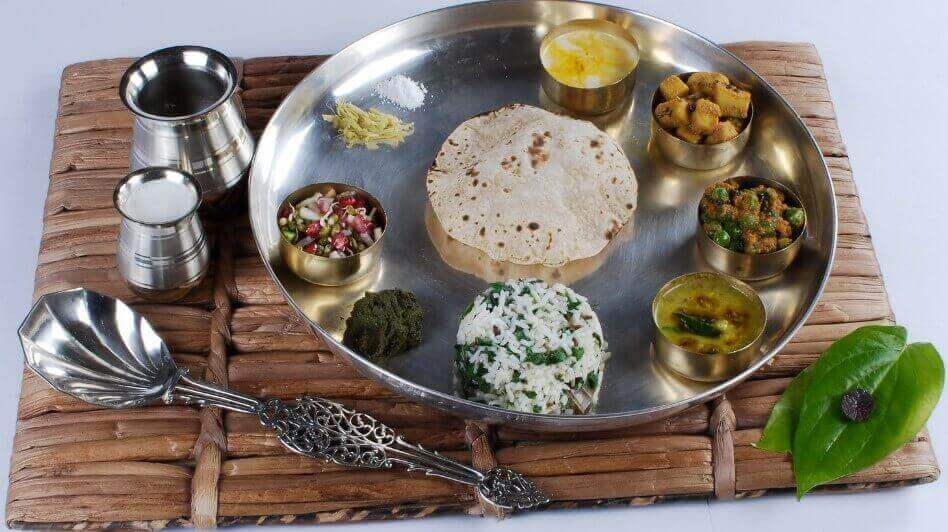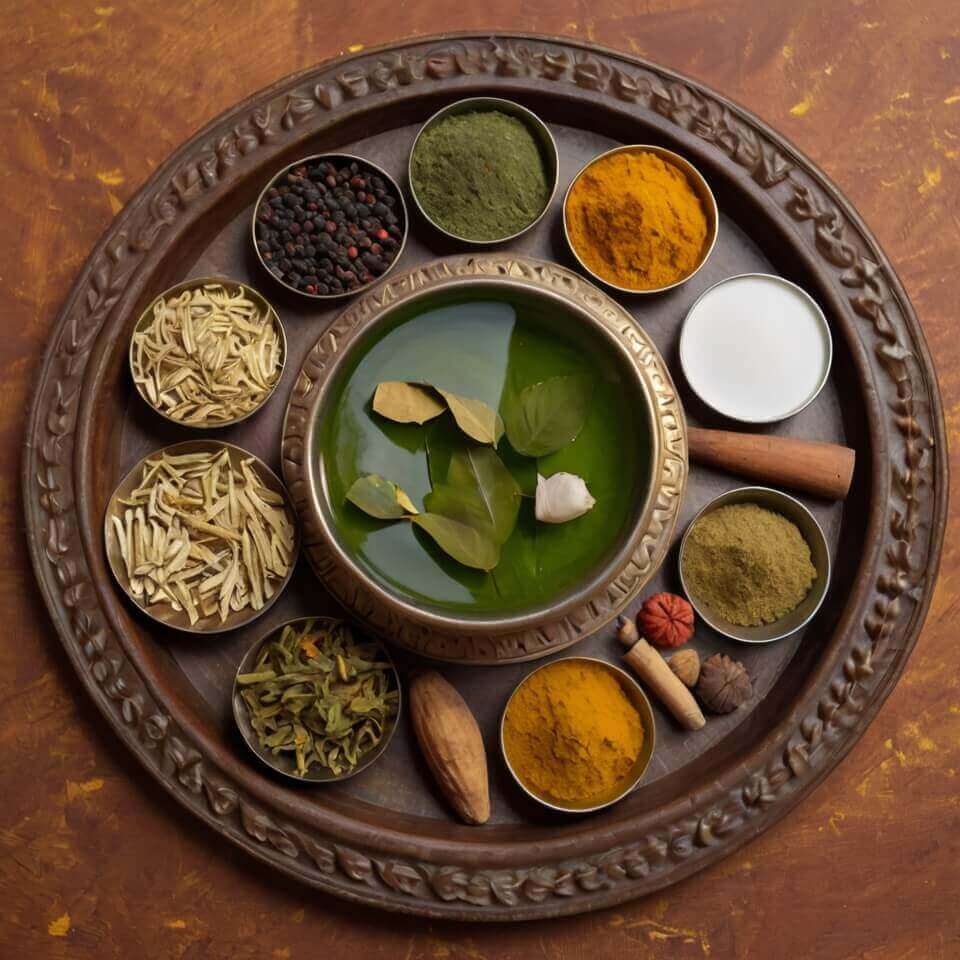
Going natural is trending a lot. In the wake of the sudden appearance and then disappearance of too many fashionable trends around us, it is important to see if being natural can last long. People, globally, have started recognizing the importance of the ancient Indian medicine and healing system, Ayurveda. With the growing incidence of diseases over the decades, mainly due to our awkward lifestyle habits, the side effects & high cost of synthetic drugs, and the lack of treatment for certain chronic diseases, the increasing belief in an ancient medicine system seems giving hope. The beauty of Ayurveda lies in its holistic approach towards a healthy lifestyle. Wellhealth Ayurvedic health tips provide insights on how to live a healthier and more meaningful life.
Also Read: Is Ghee Good for your Thyroid?
Understanding Ayurveda – A Holistic Approach to Health
According to Britannica, Ayurveda has roots dating back approximately 3000 years.
What sets the Ayurvedic medicine system apart from homeopathic, allopathic, or over-the-counter medicine is that its preventive and curative approaches are individual-specific.
The Ayurvedic treatment addresses the root cause of the disease and is free from any side effects.
It is widely claimed that one of the Ayurvedic treatment modalities such as Panchkarma can remove the disease even before it is manifested.
Balancing Mind, Body and Spirit
The beauty of Ayurveda lies in considering the whole person and not just focusing on treating a specific illness.
It emphasizes physical, psychological, philosophical, ethical, and spiritual aspects of one’s health.
Ayurveda analyses any individual’s specific needs by assessing their doshas, which are responsible for the constitution of their body.

The three primary doshas recognized in Ayurveda are Vatta, Pitta, and Kapha.
As per Ayurveda, every person has a unique combination of these doshas, which determine their physical, mental, and emotional state.
Medical practitioners in Ayurveda determine any imbalance in the dosha by considering factors such as body structure, digestion, temperament, and lifestyle.
Once the dosha imbalances are determined, the personalized treatment plan is prepared.
In a nutshell, Ayurveda does not have a one-size-fits-all approach.
It involves a comprehensive approach to determine a person’s unique needs and then a customized preventive plan is made.
These extensive measures make Ayurveda not just very effective but also safe.
The Benefits of WellHealth Ayurvedic Health Tips
Ayurveda is ‘the science of life’, derived from two Sanskrit words: ‘Ayur’, meaning ‘life’, and ‘Veda’, meaning ‘knowledge or science’.
The system emphasizes the connection between the mind, body, and soul.
Well-health Ayurvedic health tips involve combining diet, yoga, meditation, lifestyle habits, and herbal medicines to give vitality to life.
Some of the many benefits that an individual can get by following well-health Ayurvedic health tips involve:
1.) Weight Loss Management

Obesity is a growing concern around the world.
Unhealthy or uncontrolled lifestyle habits are one of the major causes of this problem.
Excess fat in the body can lead to serious health issues such as Type 2 diabetes, heart diseases, certain types of cancer, joint problems, fatty liver, sleep disorders, and digestive problems.
Adjusting the lifestyle according to the practices prescribed by Ayurveda helps a person to get rid of excess body fat.
These rules also teach a person how to manage his weight efficiently.
2.) Improves Mental Health
With a strong belief in mind and body connection, Ayurveda rituals emphasize the mental well-being of an individual.
Techniques such as yoga, meditation, and massaging are integral to Ayurveda and promote mental wellness.
3.) Enhances Immunity
Many herbal solutions available in Ayurveda have shown miraculous benefits to the human body when taken regularly.
Following the well-health Ayurvedic health tips strengthens the body’s immune responses, making it resistant to potential illnesses.
4.) Improve Quality of Sleep

Another increasing problem of modern times is sleep-related disorders.
Insufficient sleep can negatively impact an individual’s quality of life and lead to various health issues.
Ayurveda promotes good sleeping habits through various practices which help regulate sleeping routines and improve sleep quality.
5.) Improved Digestion
Poor dietary choices in modern times have taken their toll on our digestion system.
An unhealthy gut becomes the ground for constipation, gas, bloating, diarrhea, irritable bowel syndrome (IBS), mood swings, irritable behavior, insomnia, auto-immune disorders, and skin issues.
With an emphasis on eating habits, internal cleansing techniques, yoga, and regular sleeping patterns, the health of the digestive system is taken care of.
A good digestion system also ensures the proper and adequate absorption of nutrients.
6.) Healthy Skin
Our skin gives the telltale signs about our health.
Certain Ayurvedic practices and herbal formulations help in the detoxification of the body.
By removing the impurities and toxins from the body, you get clear and radiant skin that glows from the inside out.
7.) Longevity
For ages, people have aspired to live longer and enjoy a disease-free life.
Modern medical science provides an answer in the form of anti-aging pills, supplements, and cloning of body parts, which can have potential side effects.
Ayurveda believes that aging is a natural process and an individual can achieve a healthy and longer life by being in harmony with nature.
Adopting a set of daily routines and practices of healthy eating and sleeping, panchakarma (detoxification, purification, and rejuvenation), abhyanga (regular oil massage), yoga, meditation, pranayama (breathing exercises), and good moral conduct helps in achieving longevity.

WellHealth Ayurvedic Health Tips – Daily Rituals
Some of the daily well-health ayurvedic health tips are given below which if followed religiously can transform your health.
A.) Morning Routines
Ayurveda recommends starting your mornings by following certain healthy practices, that will reflect throughout the day.
Some of the daily morning routines prescribed are:
1.) Tongue Scraping
The condition of your tongue is an indicator of your health.
A discolored tongue indicates dosha imbalances in your body.
Tongue scraping is a practice that is recommended in addition to brushing, mouthwashing, and flossing.
The practice involves using a U-shaped tool or scraper to remove toxins and bacteria buildup on the tongue’s surface.

While tongue scraping has many benefits you must exercise certain precautions:
- The scraper should be of good quality and cleaned and sterilized regularly.
- The tongue should be scraped very gently.
- The scraper should not have sharp edges to cause injury to your tongue.
2.) Oil Pulling
Oil pulling involves swishing oil around in your mouth, just like a mouthwash, but for a longer duration.
It is typically recommended for 15-20 minutes, after which you should spit the oil out.
Some benefits of oil pulling include killing harmful bacteria in the mouth, reducing bad breath, preventing cavities, and strengthening gums.
3.) Drinking Warm Water
Ayurveda recommends starting the day with a glass of warm/lukewarm water.
Drinking at least one glass of warm water is very beneficial for the gut as it helps flush out toxins from the body.
Moreover, starting your day with a glass of water helps wake you up and energizes you for the entire day.
Drinking warm water empty stomach in the morning also helps balance the kapha and pitta doshas.
B.) Diet & Nutrition
Diet plays a crucial role in the maintenance of our health.
Undereating or overeating can have serious implications on one’s health.
Acharya Charka mentioned that food is the root cause of both a healthy body and diseases.
Certain factors that are given special consideration concerning food involve body-mind type or doshas, time of the day, season, period of life cycle, and living environment of a person.

Image courtesy: https://www.flickr.com/photos/pritya-books/6309122725
WellHealth Ayurvedic Health Tips – General Dietary Guidelines
- According to Ayurveda, every individual’s dietary needs should be determined based on his prakriti or doshas.
- Ayurveda stresses that the food should be fresh and of the highest quality.
- Meals should be cooked at home, using fresh ingredients.
- Eat more whole grains, fruits, vegetables, and lean protein.
- Avoid eating excessive amounts of cold, dry, bitter, salty, sugary, spicy, and fried foods.
- Always chew your food gently and thoroughly making it easier for the stomach to digest.
- Six tastes – sweet, sour, salty, bitter, pungent, and astringent should be part of a balanced diet.
- For Vata people, sweet, sour, salty, warm, heavy, and moist food is recommended.
- To balance the Pitta dosha, the food should be sweet, bitter, astringent, cool, dry, and heavy.
- The Kapha people should eat pungent, bitter, astringent, light, warm, and dry food.
- Ayurveda recommends eating food two times a day. People engaged in heavy physical & mental work can take the food more than twice when hungry.
- The best time to eat food is in the morning between 9 am and 12 pm, and in the evening between 7 pm and 10 pm.
- Fill half of your stomach with food, and one-quarter with water, and leave the rest empty.
- Do not drink water immediately before and after taking your meal.
- Incompatible food combinations should be avoided.
- The place of eating should be clean, hygienic, and peaceful.
C.) Exercise and Yoga
A balanced diet combined with the correct set of exercises can give optimal benefits to your body.
Ayurveda defines yoga exercises depending upon the doshas of a person.

- Yoga and Vata Dosha – People with Vata body types feel better by doing exercises that are calm, steady, and thoughtful.
They should do the Sun salutation slowly.
Certain standing poses such as Tadasana (mountain pose), Virabhadrasana (warrior pose), and Vrksasana (tree pose) help in pacifying vata dosha.
They must practice Savasana for a period extending more than 15 minutes.
People with vata dosha should practice calming pranayamas such as Nadi Shodhana, Bhramari, etc.
- Yoga and Pitta Dosha – People with a pitta constitution can try Ardha Matsyendrasana, Dhanurasanas, and Bhujangasana.
They should try breathing techniques that have a cooling and relaxing effect on the body.
- Yoga and Kapha Dosha – Yoga sessions that are demanding, invigorating, and warming benefit the people with Kapha dosha.
Certain exercises recommended include Salabhasana (Locust Pose), Ustrasana (Camel Pose), handstand, headstand, shoulder stand, and Dhanurasana (Bow Pose).
They must practice the Sun salutation daily.
Kapha people should keep the duration of Savasana short.
The recommended breathing techniques are Kapalabhati and Bhastrika.
WellHealth Ayurvedic Health Tips – Seasonal Recommendations
Changing seasons bring their own set of complexities and necessitate us to change our habits accordingly.
Some of the ayurvedic tips to improve your health according to the changing season are given below:
1.) Winter Season Health Tips
Winters are considered the best time to eat, enjoy, and relax.
It is the season where you can consume plenty of ghee, sugar, wheat, and rice.
You must also take enough sunlight daily and massage your body with oil.
Avoid cold drinks and pungent, bitter, and astringent foods in this season.
Exercise regularly to maintain good health.
2.) Spring Season Health Tips
You should avoid excessive sugar, fats, and oils in this weather.
Pungent, bitter, alkaline, and astringent foods should be part of the diet.
Regular exercises are especially beneficial in this season.
Self-massage in this season helps balance your energy, improve circulation, and promote detoxification.

3.) Summer Season Health Tips
You can include foods and drinks that are sweet, cold, liquid, and oily.
Ghee, milk, curd, sugar, aged rice, and aged wheat are recommended.
Make sure that you keep yourself hydrated during the summer season.
Wear breathable fabrics such as cotton or linen to protect yourself from hot weather.
Practice pranayama and the best time to exercise is early in the morning.
Pitta people should avoid exercising in the sun or anything overly exerting.
4.) Rainy & Autumn Season Health Tips
Eat moderately during the rainy season whereas you can eat more nourishing foods in the autumn.
Avoid sleeping during the day.
Incorporate self-massage and exercise regularly.
Takeaway Message
Well-health Ayurvedic health tips are the cornerstone of a healthy and disease-free life.
These tips are the way of living and one should try to follow them religiously.
If you have not yet incorporated well-health ayurvedic health tips, it is time to discover a better version of yourself.
Readings & References
- https://www.ncbi.nlm.nih.gov/pmc/articles/PMC5041382/
- https://www.britannica.com/science/Ayurveda
- https://www.ncbi.nlm.nih.gov/pmc/articles/PMC6148064/
- https://www.yo1.com/health-guide/the-benefits-of-practicing-ayurveda.html
- https://www.ncbi.nlm.nih.gov/pmc/articles/PMC6148064/
- https://artoflivingretreatcenter.org/blog/ayurveda-101-the-benefits-of-tongue-scraping/
- https://www.medicalnewstoday.com/articles/323757#summary
- https://www.researchgate.net/publication/342877371_A_critical_review_on_Ayurvedic_principles_of_Diet_Nutrition_with_special_reference_to_prevention_management_of_lifestyle_diseases_Division_of_Manas_chikitsa
- https://www.ekhartyoga.com/articles/wellbeing/yoga-for-balancing-the-doshas#:~:text=Yoga%20to%20balance%20Kapha%20dosha&text=Poses%20such%20as%20Handstand%2C%20Headstand,stamina%20for%20a%20lethargic%20kapha.


Sampurn swasthya ke liye ek vistrit aur mahtvapurn jankari is article me sunder tarike se prastut ki gayi hai. Pure varsh har season ke liye diye gaye health tips bhi bahut kaam ke hain. Sabhi ke liye bahut upyogi hain. Thanks for sharing.
Thanks a lot for your comments.